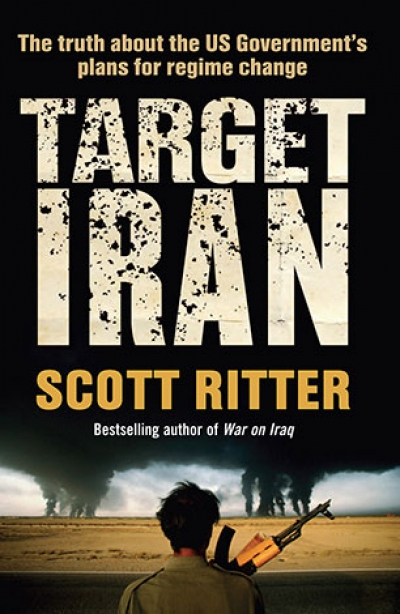



It was business as usual for Egypt’s security forces last month, as Egyptians hoping to run in the Shura (Consultative) elections on June 11 began to present their candidacy papers. As soon as registration opened for the mid-term elections, to choose half of the members of the upper house of Egypt’s parliament, three leaders of the Ikhwan al-Muslimeen (Muslim Brotherhood) were reportedly arrested in Alexandria for being “in possession of leaflets aiming at inciting public opinion.”
The creation of Israel in 1948 is commonly referred to as the nakba: the catastrophe. It is a measure of the disaster of the Arab defeat in June 1967, when al-Quds (Jerusalem) and the Haram al-Sharif were captured that, of all the disasters that the Palestinians have suffered since 1948, that is the one known as the second nakba. This month, the 40th anniversary of the Six Day War will be marked all over the world.
As this issue of Crescent went to press, the Iranian and American ambassadors to Iraq were meeting in Baghdad to discuss the appalling situation in country.
This month marks a painful anniversary in modern Muslim history: the defeat of the Arab states by Israel in 1967, and the loss of al-Quds and the Masjid al-Aqsa, Islam’s third holiest site. In the subsequent four decades, not one Muslim army has successfully defended its country’s borders or the honour of its people. Instead, all they have achieved, with ruthless efficiency, is to attack the parapets of power in their own countries, banish civilian rulers, and seize control for themselves.
This month, as in every June since 1989, Muslims around the world will hold prayer meetings, lectures and other events to mark the anniversary of the death of Imam Khomeini, who died in Tehran on June 4, 1989, a decade after the Islamic Revolution in Iran with which he will always be associated. The usual speakers -- such as this writer -- will give the usual speeches, focusing on the usual aspects of his life and character.
The expression “uneasy lies the head that wears a crown” may have to be extended to include the modest Afghan karakol cap that has, together with the Dracula gown, become President Hamid Karzai’s trademark. Obviously, such theatrics impress few in a land whose people are famed for their independent spirit, where Karzai is regarded as an American puppet. This is the kiss of death, because America’s atrocious behaviour has alienated most Afghans.
On May 25, Turkish president Ahmet Necdet Sezer vetoed a proposed constitutional amendment that had been passed by the Turkish parliament, by which the president of the country would in future be elected by a direct vote of the people, rather than by the present arrangement in which he is elected by parliament. The amendment had also proposed to reduce the president’s term from seven to five years but allow him to stand for a second five-year term.
The adage that “when you point one finger at another, four other fingers point back to you” aptly describes the Australian prime minister’s statement after his country’s withdrawal from a cricket tour in Zimbabwe last month. “The Mugabe regime is behaving like the Gestapo towards its political opponents,” said John Howard(pic). The statement is not surprising coming from Howard, known for his strong support for any policies adapted by European and American leaders. The Howard government recently outdid its Western masters in the war on terror, announcing that it would begin banning and restricting materials that it deemed to be promoting ‘terrorism’.
Albanians constitute at least 90 percent of Kosova’s population, populating virtually the entire country, while the tiny Serb minority is mostly in an enclave in the north and in much smaller ones in the predominantly Albanian-populated areas. The Albanians laid the basis for their country’s independence and for the exercise of their right to self-determination under international law as a result of the 1998–99 Kosova war that successfully ended Serbia’s control.
The removal of Paul Wolfowitz (pic) from his position as president of the World Bank is in itself a welcome development. The mere fact that he refused to resign after his involvement in a well-publicised scandal, and that president George W. Bush, who had nominated him two years before, chose to back his refusal to leave are good enough reasons to celebrate his departure.
In recent months the war of words between the West and Russia has escalated, with president Vladimir Putin delivering the three strongest attacks on the West of his seven-year rule. Not surprisingly, the two summits held between the US and Russia and the European Union and Moscow, on May 15 and May 18 respectively, failed to resolve the energy war between the two sides. But as Condoleezza Rice, the US secretary of state, explained, the confrontation between the two has nothing to do with ideology.
Despite its reputation as a model of democracy in the non-Western world, India is in fact a country with serious human-rights problems, with many of the victims being Muslim. K. C. SALEEM, a Crescent correspondent in India, reports on the problem of extra-judicial killings in India.
Target Iran: The Truth about the White House's Plans for Regime Change by Scott Ritter. Pub: Nation Books, New York, 2006. Pp: 316. Hbk: US$25.95.
As the political trouble sparked by the sacking of Pakistan’s chief justice in March shows no sign of abating, DR PERWEZ SHAFI of the Institute of Contemporary Islamic Thought (ICIT) tries to understand it using a model of political behaviour proposed by the late Dr Kalim Siddiqui.

